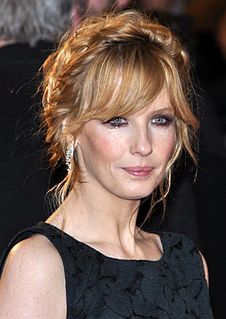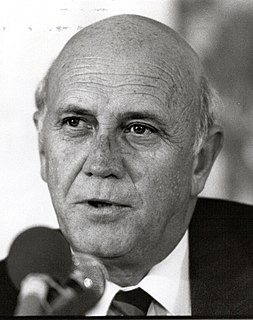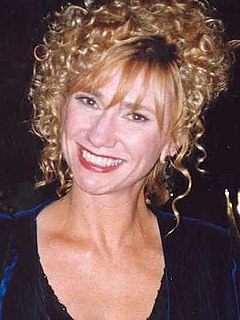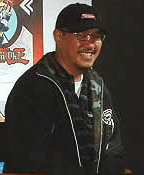A Quote by Kelly Reilly
When I was younger, I used to write to directors when I was unsure I could play a role. I'd say: 'You've made a terrible mistake.'
Related Quotes
I found it was my good fortune to somehow be able to work in these forms that I loved when I was a kid. I love movies and I could write screenplays. I love theater and I could write plays. I mean, they would be my own, I could never write what was used to be called the well-made play. But my first play, "Little Murders," turned out to be a great success and a great influence on plays at that time.
The first thing you do is sit down with your wife and say something like this, Honey, I've made a terrible mistake. I've given you my role. I gave up leading this family. ... I'm not suggesting that you ask for your role back, I'm urging you to take it back ... Be sensitive. Listen. Treat the lady gently and lovingly. But lead!
You know, you can make a small mistake in language or etiquette in Britain, or you could when I was younger, and really be made to feel it, and it's the flick of a lash, but it would sting, and especially at school where there's not much privacy, and so on. You could, yes, undoubtedly be made to feel crushed.
Contemporary technology could be used to eliminate ownership and management of corporations. It could be used to provide - lets say Apple computers. In principle information technology could be used to provide direct information to the work force on the ground so that they could democratically decide what the company would do, eliminating the role of management. It could be used for that. People aren't developing technology for that purpose.
Sanctions kept us on our toes, it made us realize that we were drifting into a situation of growing isolation so I wouldn't go as far as to say sanctions didn't play a role but if I were to put on a scale, the issues of conscience played a much greater role than the sanctions. We could have withstood sanctions for many more years. We became experts in circumventing sanctions... So sanctions played a role but it wasn't the major role.
Directors like Satyajit Ray, Rossellini, Bresson, Buñuel, Forman, Scorsese, and Spike Lee have used non-professional actors precisely in order that the people we see on the screen may be scarcely more explained than reality itself. Professionals, except fo the greatest, usually play not just the necessary role, but an explanation of the role.
There were times in my life when I said, "Oh God, I'm making a terrible, terrible mistake here." And on another level it looked as if that's exactly what I had done. All of us can look back across our lives and see what we thought was a disaster was actually a blessing - from a long-term perspective, it was a blessing. With practice, we can shorten the length of time between "what a dumb mistake I've made" and "what a brilliant choice that was.




































